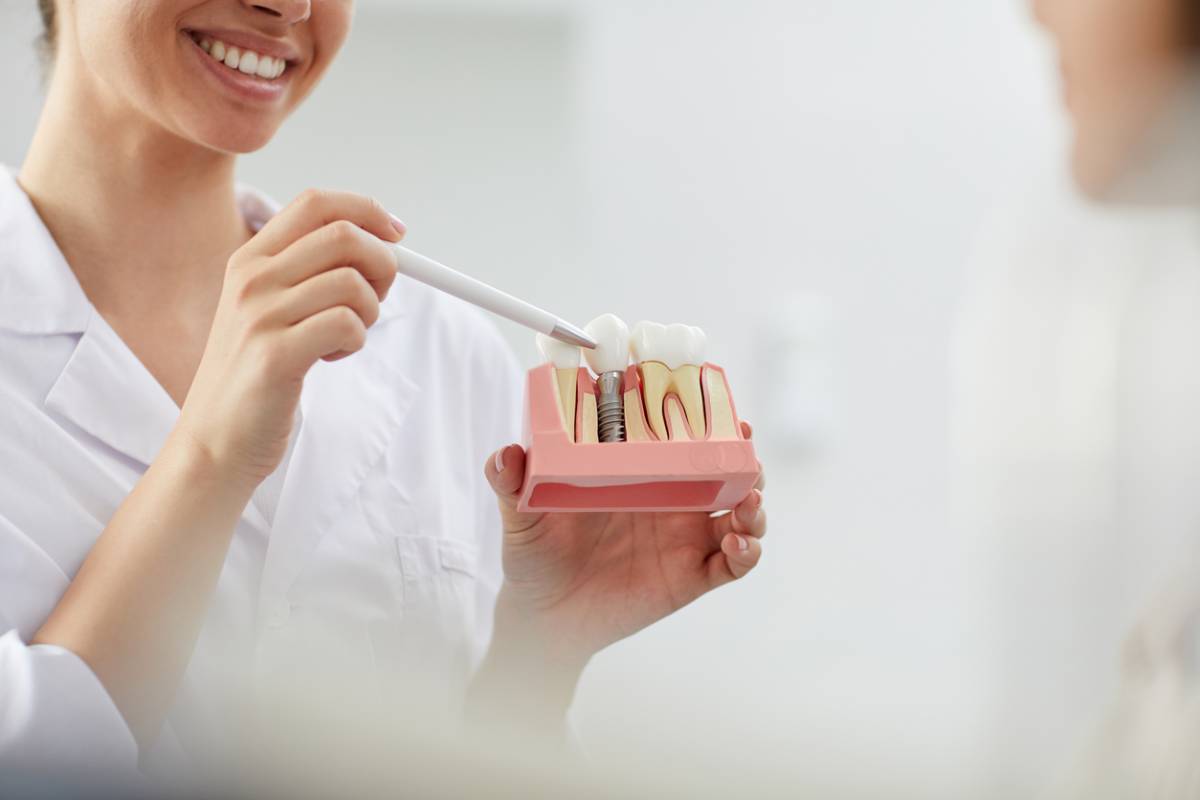Have you undergone a dental implant procedure, and you’re worried that you’re experiencing implant failure? You have come to the right page. Below, we cover key causes of dental implant failure.
Dental implant is a restorative dental treatment that has become popular because of its efficiency and convenience in restoring not just your smile but also your full dental function. Unlike dentures that need to be removed every now and then, implants are permanent teeth replacements that will stay in their place and don’t have to be removed. Usually made of titanium, they are surgically placed into the jawbone beneath the gum line. They are designed to look, feel, and function like natural teeth, allowing patients to eat, speak, and smile comfortably and confidently.
Other benefits of a dental implant for patients are improved speech, improved appearance, better oral health, and increased comfort.
Causes of Dental Implant Failure
Although there is a possibility, the good news is that dental implant failure is not a common problem among dental implant patients.
However, when they do happen, it is usually due to one or more of the following causes.
Faulty Placement
Many factors must be considered when placing an implant, such as the location of the nerve and blood vessels, the lining of the patient’s sinuses, and bone anatomy.
If the dental implant is not placed properly, that’s something to be worried about.
An incorrectly placed dental implant can cause its tip to rupture through the lining of the nasal sinuses, which leads to a painful infection.
When implants are placed on an unstable bone ridge that cannot withstand biting pressure, this will also mean implant failure.
In both cases, the implant was doomed to fail from the very beginning.
Peri-implantitis
This is an infection of the jawbone around the implants and is the most common reason for dental implant failure.
This happens when plaque and bacteria cover the implants and seep through the gum line. This causes inflammation to the gum tissue, which can lead to recession and eventual bone loss. Since implants depend on a healthy jawbone for support, bone loss can lead to implant failure.
Poor Bone Health
Bone disease caused by poor gum health can cause you to lose your natural teeth and your new implants.
When gum disease is left untreated, it can lead the bones around your mouth to shrink. This will eventually lead to tooth loss and implant failure.
Medications
Your bone density may be affected by certain medications, radiation therapy, and other medical procedures, so it is very important that you discuss your medications and other medical procedures you are going to undergo with your dentist.
Signs of Dental Implant Failure
Severe Pain
If you are still in the recovery period after the implant procedure, having some mild discomfort or sensitivity is considered normal. You should notice daily improvement and you should expect to have complete recovery after 1-2 weeks.
Severe pain or discomfort that persists after that period may be a sign of implant failure. Call your dentist immediately.
Inflamed or Swollen Implant Site
Swollen gum around the implant right after the surgery is to be expected. However, in case of severe inflammation, bleeding or redness, you need to talk to your dentist immediately. You might not be healing properly, or your implant has not fused with your jawbone.
Receding Gum Line
It should be easy for the implant to fuse with natural bone and gum tissues as they are made from biocompatible materials that are designed to do that. So, if there is a challenge in this area, the gums will begin to recede or change their shape. This is a sign of implant failure and should be discussed with your dentist right away.
Loose Tooth Replacement
Your implant should feel and work exactly like a real tooth and should sit properly in its place. That is, if proper healing is taking place. On the contrary, if the crown or bridge does not feel stable or it feels loose, then something is definitely wrong. Reach out to your dentist at once.
Difficulty in Chewing or Speaking
Your implant is expected to improve your ability to chew and speak. It should also aid you in ensuring that people understand you when you speak. If you feel that your implant is making it even more difficult for you to chew or speak, or if you can feel a weird sensation whenever you bite or talk, it may be a sign that you are experiencing dental implant failure. Call your dentist immediately.
The good news is that if implant failure is caught on time, your dentist can address the problem. So act quickly and feel free to call your dentist if you notice signs of dental implant failure.


